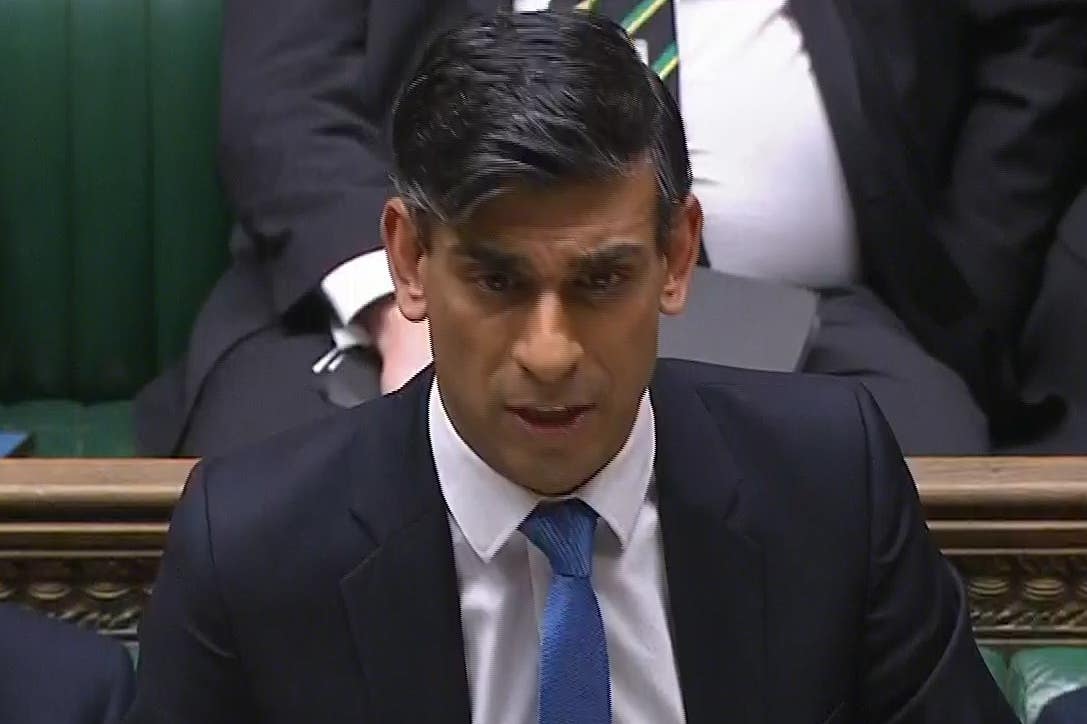Sunak has no choice but to strike the Houthis – but don’t expect it to make much difference
Downing Street and the White House cannot let attacks on the Red Sea shipping route continue, but they will be wary of such action spiralling, writes Chris Stevenson


Both Rishi Sunak and foreign secretary David Cameron tried to tread a careful line in response to the latest UK strikes against Houthi targets in Yemen.
Both made it clear that the UK would not hesitate to launch further airstrikes against the Iran-backed Houthi rebels, calling the second round of strikes (and at least the eighth by the US) an act of self defence responding to attacks on ships along a key global trade route in the Red Sea. Lord Cameron said that the strikes show Britain “backs our words and warnings with action”.
Since the middle of November, the Houthis have launched dozens of attacks on a shipping route through which about 12 per cent of the world’s trade flows. Lord Cameron said that there had been at least 12 attacks since the first joint US-UK strikes on 11 January. Mr Sunak said that inaction was not an option, and that is true. While the creation last month of the US-led Operation Prosperity Guardian, a multinational force seeking to protect ships as they travel through the Red Sea, provided some cover, the number of Houthi attacks meant that further deterrence was required.
The wider issue is the same now as it was when the Houthi attacks began – namely the risk of the escalation of violence at a time of extremely high tension across the Middle East. The spread of rocket, drone and missile fire around the region in the wake of the war in Gaza has unsettled nations around the world, and it is clear that neither the UK nor the US wants to become locked into a course of action that will involve ever-increasing strikes.

Mr Sunak told the Commons that the UK is “not seeking confrontation” while both he and Lord Cameron talked up the effectiveness of the strikes in degrading Houthi capabilities to attack Red Sea ships. Claims from the prime minister that the strikes are not linked to the conflict in Gaza are part of the same strategy of keeping UK action limited – and so avoiding the need to seek approval from parliament – but they are unconvincing.
Britain has been clear that Israel has the right to defend itself militarily in the wake of the Hamas attack on 7 October that killed around 1,100 people and saw another 240 taken hostage. Iran backs Hamas, the Houthis and Hezbollah in Lebanon (who have been exchanging fire with Israeli forces on the border between the two nations) and the Houthis have linked their actions to the escalating death toll in Gaza and the pain felt by the Palestinian people. The number of dead stands at more than 25,000 according to health officials in Hamas-controlled Gaza.
The UK government has published the legal advice it has been given over the latest strikes on Yemen. It states: “Military intervention to strike carefully identified targets in order to effectively downgrade the Houthi’s capabilities and deter further attacks was lawfully taken... It was necessary and proportionate to respond to attacks by the Houthis and this was the only feasible means available to deal with such attacks.” It is the proportionate element of that which is key.

The Houthis are used to being struck from the air, having been involved in a long civil war in Yemen, where the government has been backed by a Saudi Arabia-led coalition using airstrikes. Riyadh itself is wary of the US-UK strikes, with there having been a ceasefire in Yemen since 2022, but the aerial bombardment meant that the Houthis became proficient in storing weapons where they were difficult to hit. That is not to say the US-UK strikes will not have an impact, they certainly will to a degree, but it is unlikely to be enough to deter the Houthis.
“Houthi defiance is unlikely to diminish,” retired British army officer General Sir Richard Barrons told BBC Radio 4’s World at One programme on Tuesday, saying that the Houthi attacks will “rumble on”.
We can certainly expect more US strikes on Houthi targets in Yemen, and more UK strikes are also likely.
Mr Sunak, Lord Cameron and the UK government at large have little choice in that regard if the Houthi attacks continue at the current pace. The difficult path they need to tread is making sure that Britain’s involvement does not spiral well beyond that.



Join our commenting forum
Join thought-provoking conversations, follow other Independent readers and see their replies
Comments